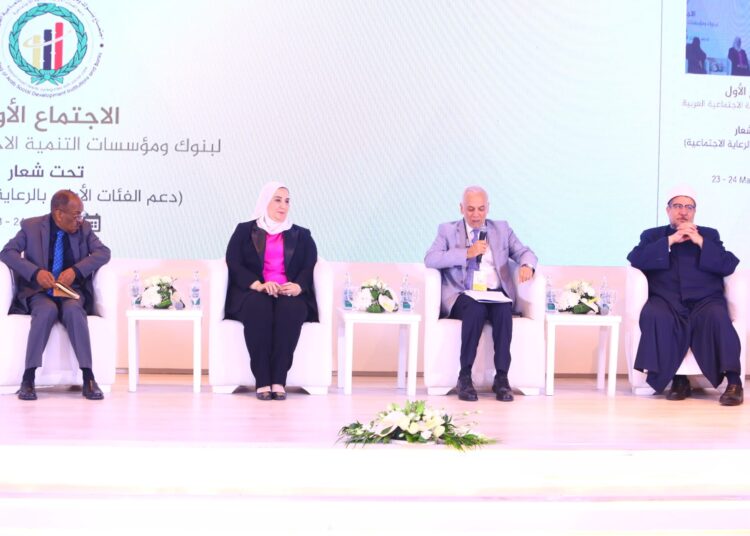Egypt’s Minister of Social Solidarity Nevine el-Qabbag on Tuesday opened the first 2-day regional meeting of social development banks and associations in the Arab states. The meeting, held under the auspices of Prime Minister Moustafa Madbouli, was in the Red Sea coastal city of Sharm el-Sheikh.
Leaders from social development banks and associations from 14 Arab countries took part in the event, in addition to representatives of UN agencies and international organisations.
The purpose of the event is to rally regional efforts to finance social protection and economic empowerment programmes in the Arab region.
The minister, who addressing the event on behalf of Prime Minister Madbouli, said: “We all know the weight of political, economic and social challenges facing many Arab nations due to political instability, combined with the negative economic impact of consecutive global crises, including terrorism, Covid-19 crisis and the Russian-Ukrainian war, which increased the number of people under poverty line in the Arab region to 130 million.”
She went on to say that Egypt realises the importance of the role of social protection networking in acheiving social development.
“In light of this, President Abdel Fattah El Sisi called for developing finance for all social protection programs to improve living standards,” el-Qabbag said.
“This was reflected in the rise in social protection expenditure in 2022 to 9.5 per cent of GDP.
“Egypt was one of the first countries to implement social protection policies with the subsidised food system in the 1940s which now has 64 million beneficiaries. “This is in addition to practicing and integrated social insurance system after the July 1952 Revolution to protect workers and their families from pay-cuts in the event of retirement, death, injury or disability,” the minister said.
In 2015, Egypt launched the Takaful and Karama Programme (Solidarity and Dignity) — the largest conditional cash support programme with monthly benefits to those in need nationwide. The programme now covers 22 million families.
Social development requires basic services in education, health, water, sanitation, energy and housing for all.
“In light of this, the government has adopted many programmes to reduce overpopulation, stamp out illiteracy and reduce poverty rates as well as providing food at low-cost prices in government outlets nationwide,” the minister said.
She went on to say that challenges facing the Arab region open up opportunities for further Arab co-operation and solidarity, since our shared history across the centuries proved that defeating crises only comes true through solidarity between Arab states.
The minister voiced hope that this event will come out with recommendations and joint projects that cement Arab solidarity in social and economic development.






Discussion about this post